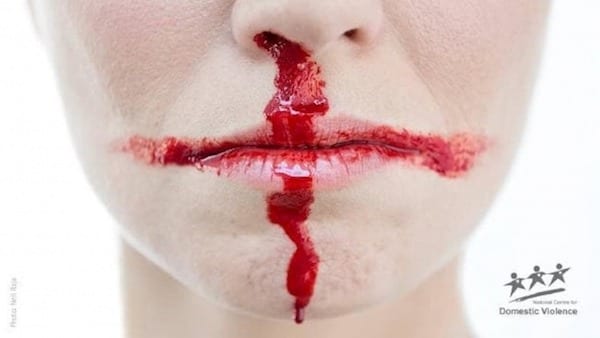The graphic poster from the National Centre for Domestic Violence features a woman bleeding from the nose with the words, ‘If England gets beaten, so will she’. It highlights 2013 Lancaster University research that found a 26% increase in abuse when England played a World Cup match, and a massive 38% when they lost.
The poster also came to mind during last night’s final State of Origin match. In light of recent research from the Foundation for Alcohol Research and Education based on NSW crime statistics which found a 40% spike in domestic assaults on State of Origin nights in NSW, along with a 70% increase in non domestic assaults.
As uncomfortable #football and #EngCro truth. Domestic Violence and the #WorldCup are closely linked, with reported incidents up by 26% if England plays, 38% if England loses and 11% the next day, win or lose. Think first. https://t.co/9S6iFjUU8u #EnglandCroatia #WorldCup2018 pic.twitter.com/PfNlAaHefK
— NHS England (@NHSEngland) July 11, 2018
That’s a significant rise, and it’s even higher than the rate of violence found by the Lancaster researchers.
Both the above bodies of research point to a broader link between violence and significant, emotion-fuelled, sporting events that for many people also involve binge drinking.
England fans in Hyde Park waste about $10,000 in beer on team’s first goal against Croatia pic.twitter.com/lfCxGZfqNW
— Darren Rovell (@darrenrovell) July 11, 2018
Women’s Community Shelters’ CEO Anabelle Daniels sees the problem firsthand. She told the ABC there is an increase in referral to crisis shelters in NSW following major sporting events, suggesting it’s the combination of alcohol, gambling and winning that can becoming “toxic in certain situations”. She said it’s more than physical violence that’s a problem; it’s also money lost on gambling that can have significant impacts on families.
The documented spike in domestic violence following sporting events should offer some very compelling reasons for sporting bodies to look at the broader role they can play in prevention.
There are now calls for the NRL to address the link between domestic violence and sport, which could build on some of the work it’s already doing on player education around respect.
Surely, there’s more scope to run their own awareness campaigns during ad breaks, to offer help and support lines and information, and also to support further research that can better understand some of the trends associated with these upticks in violence.
Indeed, it seems there’s a great opportunity for sporting bodies to lead and and play a proactive role in addressing the problem of domestic violence more broadly — well beyond the documented uptick in violence that occurs following major sporting events. They are in a great position to open new avenues for frustrations and passions to be channelled into something constructive.
The last month has been a horrific one for domestic violence in Australia, with three women alone killed in their homes on one day (Saturday just gone). Those deaths occurred less than 48 hours after the murder of two teenagers by their father in Sydney.
As Georgie Dent wrote for Women’s Agenda on Monday, if these women had been killed as a result of terror or negligence, we’d likely be seeing task-forces formed by now, inquest underway, along with press conferences featuring flags and sombre declarations about the need to confront this unacceptable threat to the safety of Australians.
So far this year, 27 weeks into 2018, 34 women have been killed by violence. Now significantly more than the ‘one woman a week’ that’s often quoted.
Tragically, we can expect that number to increase in the following weeks and months.
And one can only imagine what’s occurring right now in England.
If you or someone you know is impacted by sexual assault, domestic or family violence, call 1800RESPECT on 1800 737 732 or visit 1800RESPECT.org.au.
In an emergency, call 000.
For information about local services, download the DAISY app for iPhone and Android


